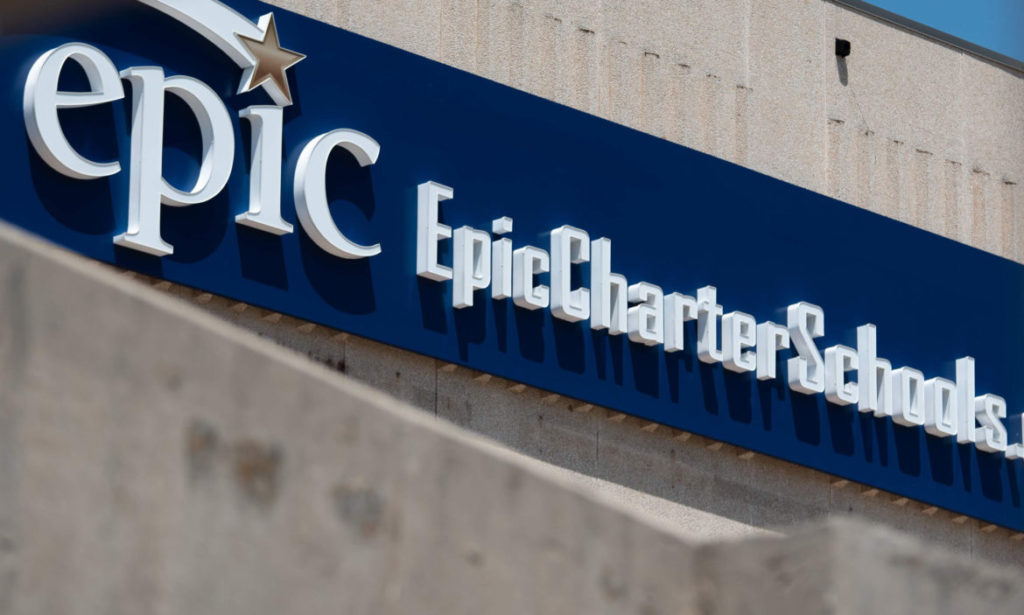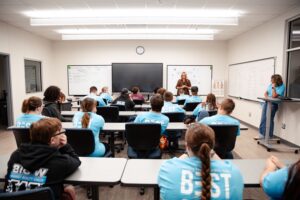OKLAHOMA CITY – Sen. Ron Sharp, a member of the Senate Appropriation Subcommittee on Education, said Monday his recent correspondence with the Oklahoma Statewide Virtual Charter School Board (OSVCSB) verifies his concerns of further illegal enrollment practices by Epic Charter Schools in order to receive additional state funding. The state’s largest virtual charter school is currently under investigation for fraud and embezzlement.
Last month, Sen. Ron Sharp questioned Epic after they publicly admitted reporting all their Oklahoma and Tulsa County students under their brick and mortar Epic Blended Learning Centers (BLCs) whether they attended the physical locations or not.
An Epic spokesperson responded to the media at the time that they report all their students as virtual charter school students in accordance with state law and that there is no separate statute governing the reporting of attendance for those students who use physical buildings (BLCs).
However, the State Department of Education (SDE) clarified that by law the BLCs are subject to the same attendance requirements as traditional charter schools, not virtual charter schools.
OSVCSB Executive Director Dr. Rebecca Wilkinson agreed with the SDE concerning the attendance policy in email correspondence with Sharp on August 12, 2019. She verified that Rose State College authorizes/sponsors Epic Blended Charter School and it is not considered a full-time virtual charter school. Being that the board does not sponsor the blended school, the board’s Title 777 of the Oklahoma Administrative Code (OAC) is not applicable to it. Other charter schools, like the BLCs, fall under Title 210 of the OAC. Subsequently, Epic Blended Charter School cannot use the virtual attendance policy of OAC 777 contrary to Epic’s July statements.
Sharp also pointed out that the brick and mortar charter school cannot be in compliance with the OAC 777 virtual attendance policy, which prohibits a student from receiving more than nine hours per week of face to face instruction. The blended charter school is also violating the 180 days of instruction or 1,080 instructional hours attendance policy.
Dr. Wilkinson further verified that for a student enrolled full-time in a virtual charter school sponsored by the OSVCB to be counted in the enrollment and attendance of a charter school not sponsored by the OSVCSB would “create an illegal dual enrollment situation”.
Sharp believes this is further evidence of their unethical, and possibly illegal, activities. The legislator was disappointed the State Board of Education approved Epic’s accreditation given they are providing inaccurate enrollment numbers to receive state funding.
“This is a blatant misrepresentation of enrollment numbers. During the enrollment process, parents choose for their kids to either utilize the virtual learning option or the blended learning one but then Epic is listing all Oklahoma and Tulsa County students under the Blended Learning Charter School, which has different statutory requirements. The State Board of Education needs to clarify the law for Epic and request accurate enrollment numbers for the Blending Learning Centers before proceeding on with their state funding,” said Sharp. “Why the State School Board didn’t see this as a deficiency or question the enrollment numbers is troubling. We must hold all of our schools, regardless of whether they are virtual or brick and mortar, financially accountable. The law is crystal clear, and schools need to follow it.”
Virtual charters and brick and mortar charters are considered different entities under state law. They have different attendance and sponsorship requirements and, therefore, are funded differently based on those requirements. Under Oklahoma statute, students can only be considered as “virtual” if they attend a virtual charter school sponsored by the OSVCSB. Epic One on One Virtual Charter School is sponsored by the OSVCSB. The “Contract” with its sponsor determines its statutory compliance requirements. The BLCs are sponsored by Rose State College and under their contract they are listed as traditional brick and mortar public charter schools, which fall under the oversight of the State Board of Education.





